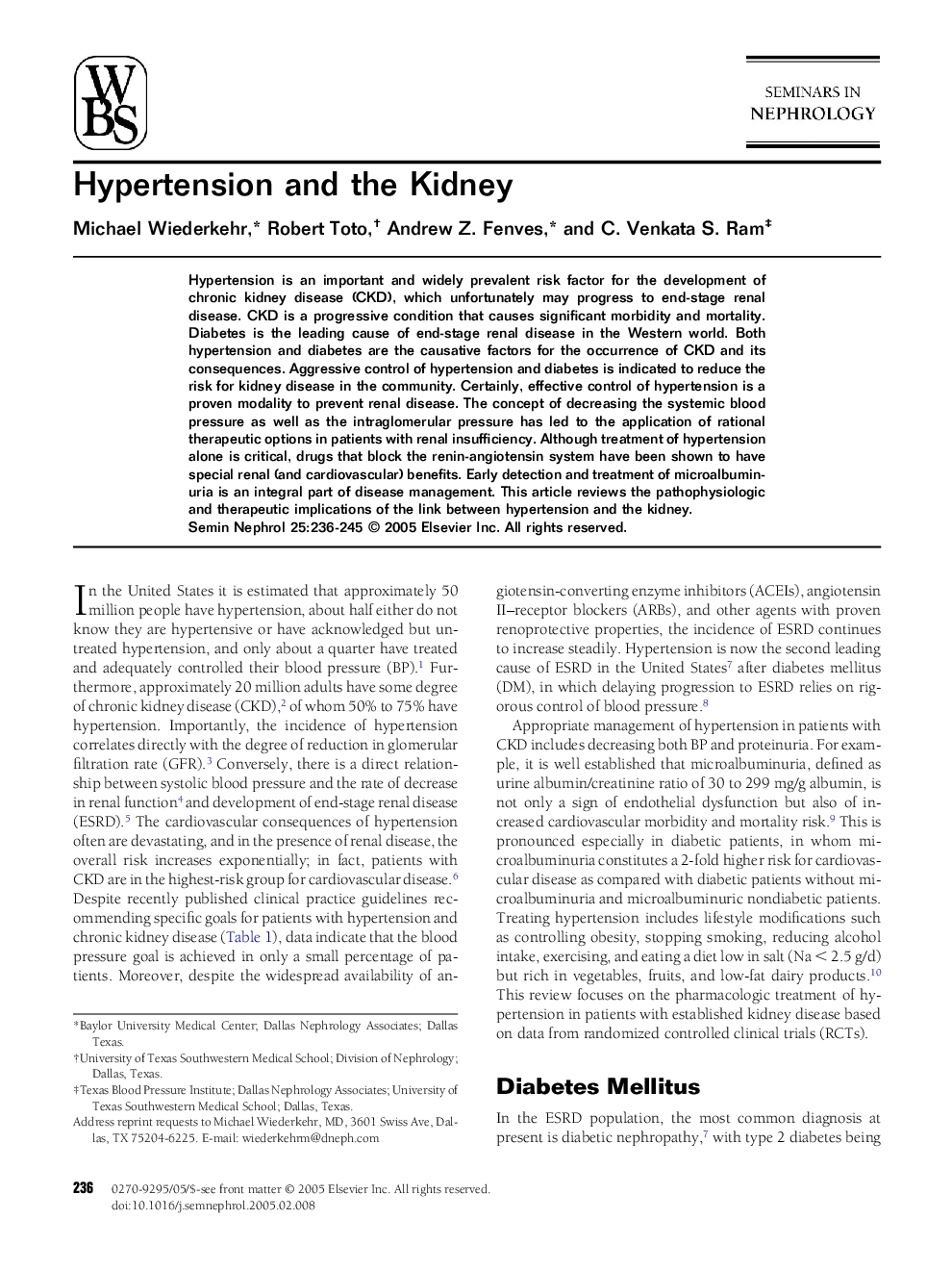| Article ID | Journal | Published Year | Pages | File Type |
|---|---|---|---|---|
| 9311499 | Seminars in Nephrology | 2005 | 10 Pages |
Abstract
Hypertension is an important and widely prevalent risk factor for the development of chronic kidney disease (CKD), which unfortunately may progress to end-stage renal disease. CKD is a progressive condition that causes significant morbidity and mortality. Diabetes is the leading cause of end-stage renal disease in the Western world. Both hypertension and diabetes are the causative factors for the occurrence of CKD and its consequences. Aggressive control of hypertension and diabetes is indicated to reduce the risk for kidney disease in the community. Certainly, effective control of hypertension is a proven modality to prevent renal disease. The concept of decreasing the systemic blood pressure as well as the intraglomerular pressure has led to the application of rational therapeutic options in patients with renal insufficiency. Although treatment of hypertension alone is critical, drugs that block the renin-angiotensin system have been shown to have special renal (and cardiovascular) benefits. Early detection and treatment of microalbuminuria is an integral part of disease management. This article reviews the pathophysiologic and therapeutic implications of the link between hypertension and the kidney.
Related Topics
Health Sciences
Medicine and Dentistry
Nephrology
Authors
Michael Wiederkehr, Robert Toto, Andrew Z. Fenves, C. Venkata S. Ram,
